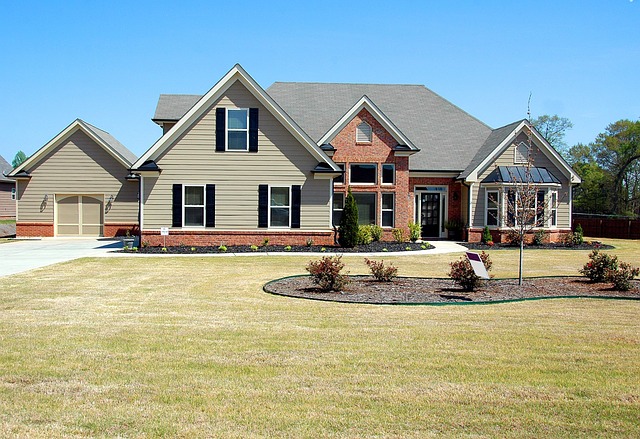A Dual Key Executive Condo (EC) in Singapore offers a unique living solution with two distinct keys, each unlocking a separate and fully-equipped home within the same residential unit. Designed to cater to multigenerational families or investors, these ECs are available on a 99-year leasehold basis and can be used for family living or rental purposes, with specific rules for subletting during the first five years. To purchase an EC, applicants must meet strict eligibility criteria set by the CPF Board and Housing & Development Board (HDB), including being Singaporean citizens or permanent residents, not owning any residential property for at least 30 months, and adhering to a maximum household income. The Dual Key feature allows owners to live in one unit while renting out the other, with potential income generation and the ability to adapt to changing family dynamics over time. It's crucial for buyers to understand the regulations governing ECs, including the Minimum Occupation Period (MOP) and lease terms, as well as the resale lease agreement's implications for long-term investment. Additionally, when considering resale or subletting of a Dual Key EC, sellers must comply with specific HDB regulations, Land Titles Act, and Strata Titles Boards Act provisions, ensuring all approvals are in place before transferring ownership interests. Understanding the unique aspects of Dual Key ECs is essential for both buyers and sellers to navigate this niche market effectively.
Exploring the intricacies of a Dual Key Executive Condo (EC) in Singapore requires a keen understanding of its unique features and legal framework. This article demystifies the EC landscape, detailing eligibility criteria, leasehold tenure nuances, and resale and subletting provisions specific to these properties. Whether you’re considering purchasing, selling, or navigating the resale market, each step is governed by distinct regulations. Understanding these aspects is pivotal for prospective EC owners to make informed decisions within Singapore’s dynamic property sector.
- Understanding the Unique Features of a Dual Key Executive Condo (EC)
- Legal Eligibility Criteria for Purchasing a Dual Key EC in Singapore
- Leasehold and Tenure: What You Need to Know About Dual Key ECs
- Resale and Subletting Provisions Specific to Dual Key ECs
- Navigating the Resale Market: Legal Considerations for Selling Your Dual Key EC
Understanding the Unique Features of a Dual Key Executive Condo (EC)

Navigating the unique attributes of a Dual Key Executive Condo (EC) requires a discerning eye and an understanding of its specialized structure. These units are designed to cater to the evolving needs of households, offering the flexibility of two separate living spaces within one unit. The primary key provides a spacious and fully-fledged housing environment suitable for families or individuals looking for a comfortable abode. This key is typically intended for occupancy by at least one family member who has attained the age of 35 years old, aligning with the eligibility criteria for ECs.
The secondary key, on the other hand, is tailored to accommodate younger family members or even be rented out. This component of the Dual Key EC can be occupied by individuals aged 18 years and above, offering a versatile living solution that supports multigenerational families or generates additional income through rental opportunities. Prospective buyers should consider the legal framework governing ECs, including the Minimum Occupation Period (MOP) and resale leases, to fully understand the implications and benefits of owning such a property. Understanding these features is crucial for those looking to maximize their investment and living potential within an Executive Condo.
Legal Eligibility Criteria for Purchasing a Dual Key EC in Singapore

In Singapore, the legal eligibility criteria for purchasing a Dual Key Executive Condominium (EC) are clearly defined to cater to the diverse needs of families and investors alike. As per the guidelines set by the CPF Board and Housing & Development Board (HDB), applicants must fulfill certain conditions to be eligible for this unique housing option. A Singaporean citizen or a permanent resident intending to apply for an EC must meet the criteria which includes being at least 21 years old, earning a monthly household income of not more than $14,000 for a flat, and not owning any residential property 30 months before the application. Additionally, for the Dual Key feature, one key must be for the primary residence, while the other can be leased out, providing flexibility for homeowners. This dual-purpose design allows owners to live in one unit and rent out the other within the same development, subject to the prevailing rules regarding subletting or renting out EC units within the first 5 years of occupancy. Prospective buyers must carefully consider these criteria to ensure they are compliant with the regulations governing EC ownership in Singapore. Understanding these legal stipulations is crucial for a smooth and legitimate transaction when investing in a Dual Key Executive Condo.
Leasehold and Tenure: What You Need to Know About Dual Key ECs

When exploring the acquisition of a Dual Key Executive Condo (EC) in Singapore, understanding the nuances of leasehold and tenure is paramount. Unlike traditional private condominiums that often come with a 99-year lease or freehold status, ECs are leasehold properties typically granted a 99-year lease from the date of acquisition. This distinction is crucial as it impacts your long-term investment potential and the rights you hold over the property. For Singaporean families or married couples including at least one Singaporean, ECs offer a flexible housing solution that caters to their needs across different life stages.
Moreover, Dual Key ECs present a unique opportunity for owners to rent out one unit while residing in the other, thanks to their design that allows for separate and independent living spaces within the same dwelling. This feature is particularly appealing for multi-generational families looking to live together yet maintain privacy and autonomy. Prospective buyers must consider the terms of the lease agreement, as it stipulates the duration over which the land on which the EC stands is leased from the government. It’s important to review these terms in conjunction with the Master Plan for housing and development in Singapore, which may affect future renewals or redevelopment opportunities. Understanding the leasehold arrangement and how it aligns with your long-term plans is a key factor in the wise investment of a Dual Key EC.
Resale and Subletting Provisions Specific to Dual Key ECs

When considering the resale and subletting provisions for a Dual Key Executive Condominium (EC), it’s crucial to understand the unique stipulations that differentiate it from other housing types. These ECs, designed to cater to the needs of multi-generational families, feature dual key functionality, allowing for the option of combining or separating the units. Prospective buyers should be aware that the resale of a Dual Key EC comes with specific conditions. For instance, one must be a Singapore citizen, and the other can be a SingPass account holder, which is not a restriction applicable to standard resale ECs. Additionally, the primary applicant, who is a Singapore citizen, must occupy the unit for at least 5 years before it can be sold on the open market.
Subletting in Dual Key ECs also has its particular set of rules. While subletting one or both parts of the unit may be permissible under certain conditions, such as to Singapore citizens who meet the eligibility criteria for ECs, it’s essential to consult the Housing & Development Board (HDB) or the relevant authorities for the most up-to-date guidelines. This is because subletting regulations are subject to change and can vary based on the prevailing policies aimed at ensuring a sustainable public housing ecosystem. Prospective owners should meticulously review these provisions to ensure compliance, as failure to adhere to these terms could lead to penalties or forfeiture of rights to the EC. Understanding the intricacies of resale and subletting for Dual Key ECs is pivotal for potential buyers to navigate these regulations effectively.
Navigating the Resale Market: Legal Considerations for Selling Your Dual Key EC

When considering the resale market for a Dual Key Executive Condominium (EC) in Singapore, it’s crucial to understand the unique legal framework that governs such transactions. Unlike traditional resale processes, ECs come with a stipulation allowing owners to sell both keys separately, offering greater flexibility. Sellers must ensure compliance with the Housing & Development Board (HDB) rules and the legal requirements set forth by Singapore’s Land Titles Act and Strata Titles Boards Act. It’s imperative to ascertain that all necessary approvals have been obtained for the resale of both keys, as each sale involves transferring a separate ownership interest within the same property. The CPF Housing Grant for ECs, which originally applied to the initial purchase, does not apply to subsequent resales. Moreover, potential sellers should be aware of the Minimum Occupation Period (MOP) requirement before they can sub-sell the subsidized unit key. Understanding these legal nuances is essential for a seamless transaction in the resale market of Dual Key ECs. Sellers must navigate these regulations carefully to ensure a lawful and profitable resale experience.
When investing in a Dual Key Executive Condo (EC) in Singapore, it’s crucial to grasp the nuances of its unique structure and legal framework. This article has demystified the features of a Dual Key EC, outlining the eligibility criteria, leasehold and tenure details, resale and subletting provisions, and considerations for those looking to sell in the resale market. Prospective buyers and current owners alike will find the information provided here indispensable for navigating the specific legal landscape that governs Dual Key ECs. With this knowledge, you can make informed decisions that align with your long-term housing objectives within the guidelines set forth by Singaporean law.
